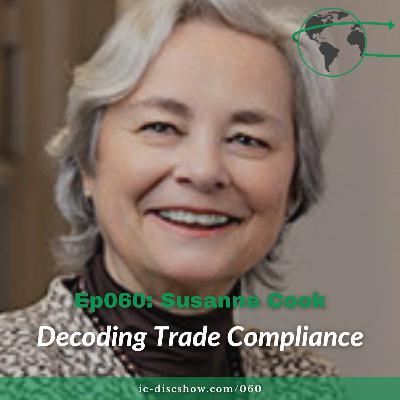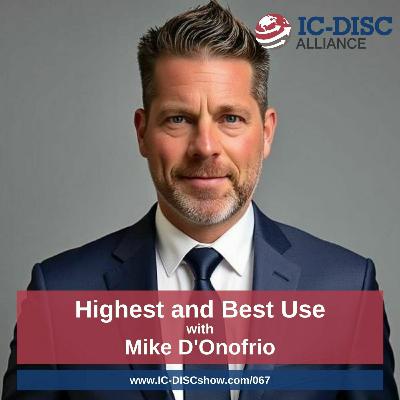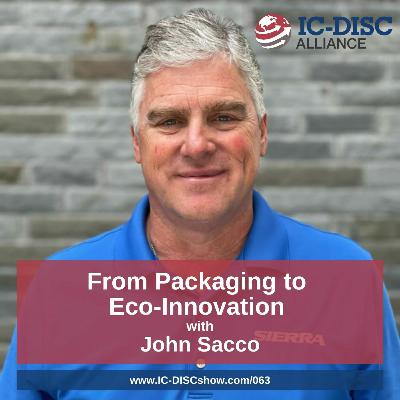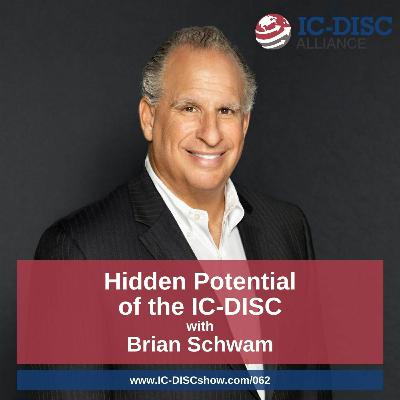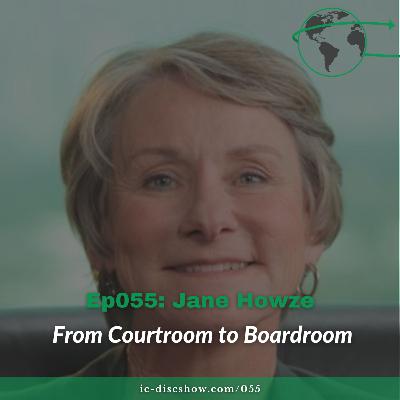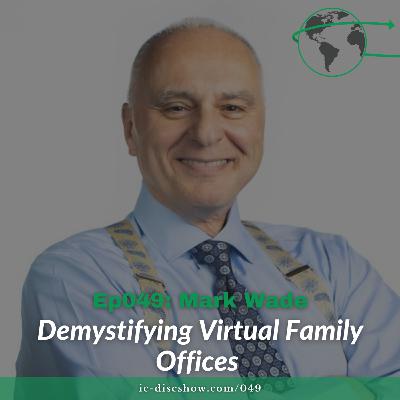Ep060: Decoding Trade Compliance with Susanne Cook
Description
In this episode of the IC-DISC show, I speak with Susanne Cook, a senior partner at Denton's Cohen and Grigsby, exploring the world of international trade compliance.
Based in Pittsburgh, Susanne chairs the firm's International Business Team and provides insights into import regulations and export control classifications.
We dive deep into the complexities of U.S.-China trade relations, examining Section 301 tariffs and their impact on small-value imports. She shares practical strategies companies use to navigate these challenges, such as China's establishing factories in Mexico to counter tariff restrictions.
The conversation highlights the critical importance of accurate prior disclosures to regulatory agencies. Through a compelling case study, Susanne illustrates how businesses can effectively manage compliance, demonstrating that U.S. agencies can be forgiving when companies approach disclosure with transparency and comprehensiveness.
Beyond trade compliance, we touch on personal development. I share insights on work-life balance and the significance of building a capable team. Susanne's expertise provides a unique lens into how professional challenges can be navigated with strategic thinking and thorough preparation.
<iframe width="560" height="315" src="https://www.youtube.com/embed/SnSPKRksW7A?si=s0aDhHxMJmC4uCsJ" title="YouTube video player" frameborder="0" allow="accelerometer; autoplay; clipboard-write; encrypted-media; gyroscope; picture-in-picture; web-share" referrerpolicy="strict-origin-when-cross-origin" allowfullscreen></iframe>
SHOW HIGHLIGHTS
- Susanne Cook, a senior partner at Denton's Cohen and Grigsby, shares her expertise on international trade compliance, focusing on the import side of the practice.
- The episode discusses the importance of accurate prior disclosures to regulatory agencies and the potential consequences of incomplete disclosures.
- We explore the challenges and strategies related to U.S.-China trade relations, specifically regarding Section 301 tariffs and the implications for small-value imports.
- Susanne provides a case study on determining export control classifications, highlighting the role of full disclosure and the forgiving nature of U.S. agencies when proper steps are taken.
- The conversation covers the growth of Denton's trade practice, emphasizing their specialization in assisting foreign companies entering the U.S. market.
- We examine China's strategy of building factories in Mexico to circumvent tariffs through USMCA and the role of trade experts in advising businesses.
- The discussion touches on the characteristics of an ideal client for trade advisory services, including large companies with sophisticated internal traffic groups and growing businesses.
- We highlight the importance of early compliance to avoid potential pitfalls and the necessity for companies to understand their import-export responsibilities.
- Susanne and I delve into personal growth and team building, discussing the significance of surrounding oneself with a capable team and achieving work-life balance.
- The episode offers practical advice on personal and professional development, emphasizing teamwork and strategic client selection.
Contact Details
LINKS
GUEST
TRANSCRIPT
(AI transcript provided as supporting material and may contain errors)
Dave: Hello, this is David Spray and welcome to another episode of the IC Disc Show. My guest today is Susanne Cook, and Susanne is a senior partner and she chairs the Denton's Cohen and Grigsby International Business Team, so her practice is all international trade and one of the fun things we got into was on the import side, which I know little about. So, although our firm has an export focus, it was really interesting hearing about the import side, because many people assume that if we have exporting capabilities and expertise, that we have comparable capabilities on the inside, or the import in which we don't comparable capabilities on the inside, or the input, in which we don't. So this was a wide-ranging interview and Susanne is a really interesting person and she's from the Pittsburgh and in the Pittsburgh office of the firm and I hope you enjoyed this episode as much as I did. Good morning, Susanne. How are you today?
Susanne: I'm doing well in sunny Pittsburgh.
Dave: Oh, that is great. Now are you a native of Pittsburgh.
Susanne: No, Pittsburgh is my adopted city. You may detect an accent I am German.
Dave: I attended law school in the United.
Susanne: States. I attended law school in the United States and Pittsburgh is my adopted city and I am a fan.
Dave: Okay, that is great. Well, I know that you chair your firm's international business team.
Susanne: What does that tell me about what that entails? Tell me about the international business team at DIMMS. It really consists of two pieces and maybe going into it historically kind of explain the development of that team. Being German, I've always had an interest in international law and I liked Pittsburgh and decided to practice international law from Pittsburgh, heading out of law school, and in those days it was a little bit more unusual than it is today. We lived through COVID and can connect from wherever we are. 10, 20 years ago it was more unusual to practice international law in Pittsburgh, but that's what we decided to do so.
We tend the group tends to international clients coming to the United States to do business here and have developed what we call the soft landing program. And that grew the trade practice, the export-import trade practice that, frankly, within the last five years or so has quadrupled in size. We engaged additional attorneys in that field as trade.
Dave: Everybody reading the paper can see how we impose additional tariffs, how we impose additional expert control measures and so, responding to that need, that part of our practice has grown incredibly of our practice has grown incredibly Okay, and so it's mostly I guess they would call this inbound business mostly foreign companies trying to do business in the US, or is it split pretty evenly between that and US companies like on the export controls work and such?
Susanne: I'm glad you're asking. We do both, but the majority is really inbound. Yes, we do assist companies, do business overseas, but really what that entails is finding somebody in that country who is like the Susanne Cook overseas to do what we do here, and ultimately we just hand it off to a good resource. Now I think that's valuable for a client, but really where we are more engaged is on the inbound side. And then for on the trade side, it's also companies who do business internationally and need US export control advice.
Dave: Okay, that's helpful and so help us understand. I love case studies, examples. Could you give us an example? And if you need to anonymize the client's name, of course feel free to do so but maybe give us an example of like a couple engagements that might be representative and maybe kind of lay out sort of the fact pattern and again, you know, anonymize as appropriate.
Susanne: Right, of course.
Of course, a simple case study would be a client who is engaged in exporting and at one point wonders whether the software or a hard product is export controlled and reaches out to us and we look at the product and assist in classification as to whether this item is controlled or not.
If we determine it's not controlled, that's wonderful, the end of the story. The next step may be that it is controlled and at that point we look at okay, point, we look at okay. We look at past exports to see if any of those should have been pursued under a license, and that could be a license through commerce, it could be a license under ITAR, which is military, and ultimately, depending on the

